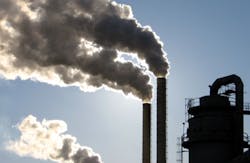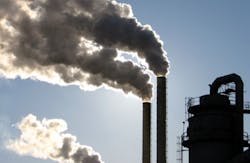So far the country has mainly imported petrochemical products but the government is set to change this with the new industrial centers. They are planned to be located in Muara Enim, South Sumatra and Bintuni Bay, West Papua, the Industry Ministry's director general for manufacturing-based industry Panggah Susanto announced. The first center will focus on production of methanol and ammonia by processing natural gas and coal, whereas the second one will use natural gas to make methanol, polypropylene, polyethylene and ammonia, he explained. Each refinery is likely to cost between $4 billion and $5 billion, according to the Jakarta Post, and the government is determined to find investors by providing various incentives, including tax allowances and tax holidays.
However, plans for boosting Indonesia's petrochemical industry do not end there. The government also intends to support the development of oil refineries that could supply raw material for the upstream petrochemical centers in Cilegon, Banten; Tuban, East Java; and Bontang, East Kalimantan. The centre in Cilegon is currently using imported naphtha for its production, whereas the one in Tuban relies on imports of condensate.
RELATED: Shell moves natural gas business to Singapore
According to Panggah, the country needs at least three refineries, each one being capable of processing 300,000 barrels of oil per day. Products such as fuel, naphtha and propylene might be used by olefin plants currently functioning and the condensate would go to existing aromatic plants, thus contributing to the development of Indonesia's petrochemical industry, he added.
Fuel and naphtha are key for the petrochemical industry because they are used as raw materials to produce propylene, which is in turn a key material for a wide range of plastic-based household products. Naphtha and fuel are also used to make condensate, which can be processed to produce synthetic fibers.
Indonesia's efforts to increase its international role as a petrochemical products manufacturer will be backed by the launch of naphtha crackers, which would take up another $1 billion in investments, to produce one million tons of ethylene to make polyethylene, propylene and polypropylene. New aromatic plants will also have to be built to produce chemicals like benzene and toluene, which are the main ingredients in manufacturing paraxylene for the textile industry, Panggah said.
Even though the country's petrochemical industry has already been operating for nearly 30 years, it was hit by an upstream production slowdown in the last decade, which made the midstream and downstream industry rely heavily on imported raw materials. In 2011, the total value of imported petrochemicals came in at $6 billion. Projections for this year predict a rise of about 10 percent to $6.5 billion as Indonesia is seeing increasing demand for plastics and textiles, the Industry Ministry said. State-owned oil and gas company PT Pertamina has already announced it is willing to invest some $5 billion in construction of a naphtha cracker with a foreign partner.

